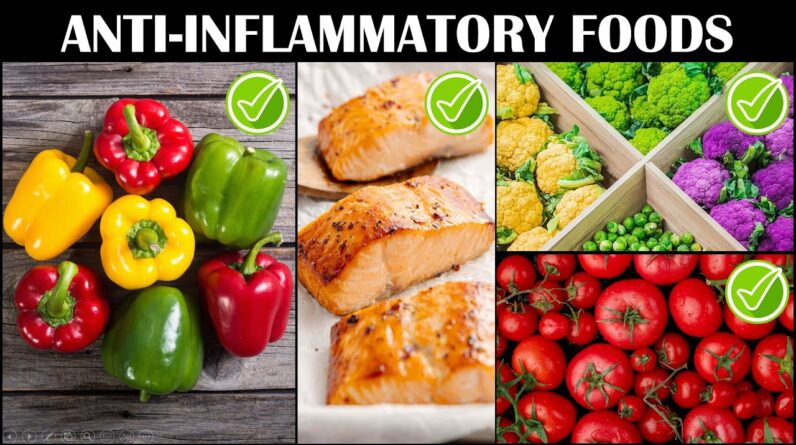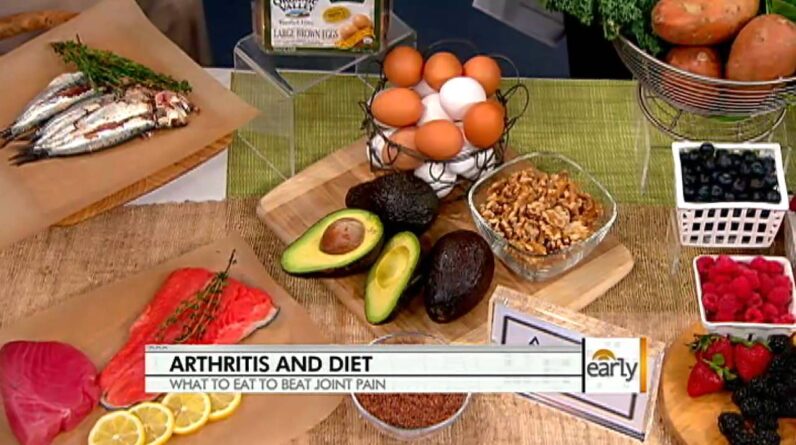
We all know the importance of maintaining a healthy body, and one key aspect of that is keeping inflammation in check. Inflammation, while necessary for healing, can become chronic and lead to various health conditions such as diabetes, obesity, and metabolic syndrome. Luckily, there are numerous foods that can help reduce inflammation in our bodies. Some of the best anti-inflammatory foods include dark vegetables like broccoli, spinach, and kale, which are packed with antioxidants and have been linked to a decreased risk of heart disease and cancer. Fatty fish like salmon, sardines, and mackerel are another great option, as they contain omega-3 fatty acids that have powerful anti-inflammatory effects. Berries, tomatoes, peppers, green tea, and grapes are also excellent choices due to their antioxidant properties and ability to combat inflammation. Additionally, foods like avocados, olive oil, nuts, mushrooms, turmeric, and dark chocolate can also contribute to an anti-inflammatory diet. By incorporating these foods into our meals, we can take a step towards reducing inflammation and promoting overall health and well-being.

This image is property of i.ytimg.com.
Dark Vegetables
Dark vegetables such as broccoli, spinach, and kale are not just tasty additions to our meals, they also possess incredible anti-inflammatory properties. These vegetables are often referred to as superfoods due to their high nutrient content. The presence of antioxidants in dark vegetables is what gives them their anti-inflammatory properties. Antioxidants help to neutralize harmful free radicals in our bodies, reducing inflammation and promoting overall health.
In addition to their anti-inflammatory benefits, consuming a lot of dark vegetables is associated with a decreased risk of heart disease and cancer. These vegetables are packed with essential vitamins, minerals, and fiber, making them a great choice for a healthy and balanced diet. So, the next time you’re planning your meals, be sure to include plenty of dark vegetables to help reduce inflammation and promote optimal health.
Fatty Fish
Fatty fish, such as salmon, sardines, herring, and mackerel, are not just delicious, but they’re also a fantastic source of protein and omega-3 fatty acids. Omega-3 fatty acids, in particular, have powerful anti-inflammatory effects in the body. Our bodies metabolize these fatty acids into compounds called resolvins and protectins, which help to reduce inflammation and improve overall health.
Regularly consuming fatty fish can have a significant impact on reducing chronic inflammation and associated conditions like diabetes, obesity, and metabolic syndrome. Including fatty fish in our diet can provide us with essential nutrients while also helping to keep inflammation at bay. So, don’t hesitate to include these healthy and flavorful options in your meals.
Berries
If you have a sweet tooth and want to combat inflammation at the same time, berries are the perfect solution. Strawberries, blueberries, raspberries, and blackberries are not only delicious but also packed with antioxidants, especially anthocyanins. These antioxidants help to fight free radicals and reduce inflammation in the body.
Berries are also extremely nutritious and have a low glycemic index, making them a suitable choice even for individuals with diabetes. So, whether you enjoy them fresh, frozen, or added to your favorite dishes, make sure to incorporate berries into your diet to enjoy their anti-inflammatory benefits.
Tomatoes
Tomatoes are not just a versatile ingredient in countless dishes; they are also a powerhouse of health benefits. One of the key compounds found in tomatoes is lycopene, which is a potent antioxidant. Lycopene helps to improve antioxidant defenses in the body and reduces the risk of inflammatory diseases.
In addition to lycopene, tomatoes are also a good source of vitamins C and folate, as well as potassium. These nutrients further contribute to their anti-inflammatory properties and overall health benefits. So, whether you enjoy them in salads, sauces, or as a standalone snack, make sure to include tomatoes in your meals to reduce inflammation and support your well-being.
Peppers
Peppers, both bell peppers and chili peppers, are not just colorful and flavorful additions to our dishes, but they also offer incredible anti-inflammatory benefits. Bell peppers, in particular, are loaded with vitamin C and antioxidants, with quercetin being the principal antioxidant. Quercetin has powerful anti-inflammatory effects, helping to reduce inflammation in the body.
On the other hand, chili peppers contain synapic acid and ferulic acid, which also have strong anti-inflammatory properties. Whether you prefer the mildness of bell peppers or the spicy kick of chili peppers, both varieties can help to combat inflammation and promote a healthy lifestyle.
Green Tea
Green tea is not just a refreshing beverage; it also boasts numerous health benefits, including its anti-inflammatory effects. Green tea is rich in a substance called epigallocatechin III gallate, which is responsible for its major antioxidant effects. This compound helps to inhibit inflammation by reducing the production of pro-inflammatory cytokines and protecting against damage to fatty acids.
Regular consumption of green tea has been linked to a reduced risk of heart disease, cancer, Alzheimer’s disease, obesity, and many other conditions. So, next time you’re looking for a hot or cold drink, opt for green tea to enjoy its many health benefits and reduce inflammation.
Grapes
Grapes are not only a delicious and refreshing snack; they’re also packed with antioxidants called anthocyanins, which give grapes their vibrant colors. Regular consumption of grapes has been associated with a decreased risk of heart disease, diabetes, obesity, Alzheimer’s disease, and eye disorders. Grapes are also one of the best sources of resveratrol, another compound with significant antioxidant properties and anti-inflammatory effects.
So, whether you prefer red, green, or purple grapes, don’t hesitate to include them in your diet. They not only provide a sweet and natural treat but also offer numerous health benefits, including their anti-inflammatory properties.
Additional Anti-inflammatory Foods
In addition to the aforementioned foods, there are several other anti-inflammatory options worth mentioning. Avocados, for example, are a great source of healthy fats and have been shown to reduce inflammation in the body. Olive oil, particularly extra virgin olive oil, is another excellent choice for its anti-inflammatory properties.
Nuts like almonds and walnuts are not only delicious but also packed with healthy fats and antioxidants that help combat inflammation. Mushrooms have long been used in traditional medicine for their anti-inflammatory properties and are a nutritious addition to any diet. Turmeric, a spice commonly found in curry dishes, contains a compound called curcumin, which has potent anti-inflammatory effects.
Lastly, dark chocolate, in moderation, can provide anti-inflammatory benefits. Dark chocolate contains antioxidants called flavonoids, which have been shown to reduce inflammation and provide cardiovascular benefits. So, when you’re looking for some additional anti-inflammatory foods to add to your diet, consider avocados, olive oil, nuts, mushrooms, turmeric, and dark chocolate.
Conclusion
Inflammation is a natural response in our bodies, but chronic inflammation can lead to various health problems. Fortunately, our diet plays a significant role in reducing inflammation and promoting overall health. Incorporating the seven best anti-inflammatory foods, including dark vegetables, fatty fish, berries, tomatoes, peppers, green tea, and grapes, into our meals can help combat inflammation and reduce the risk of conditions such as diabetes, obesity, and heart disease.
Additionally, including other anti-inflammatory foods such as avocados, olive oil, nuts, mushrooms, turmeric, and dark chocolate can further support our journey towards a healthier, inflammation-free lifestyle. So, let’s make conscious choices and enjoy the benefits of these delicious and nutritious foods while taking care of our bodies.






